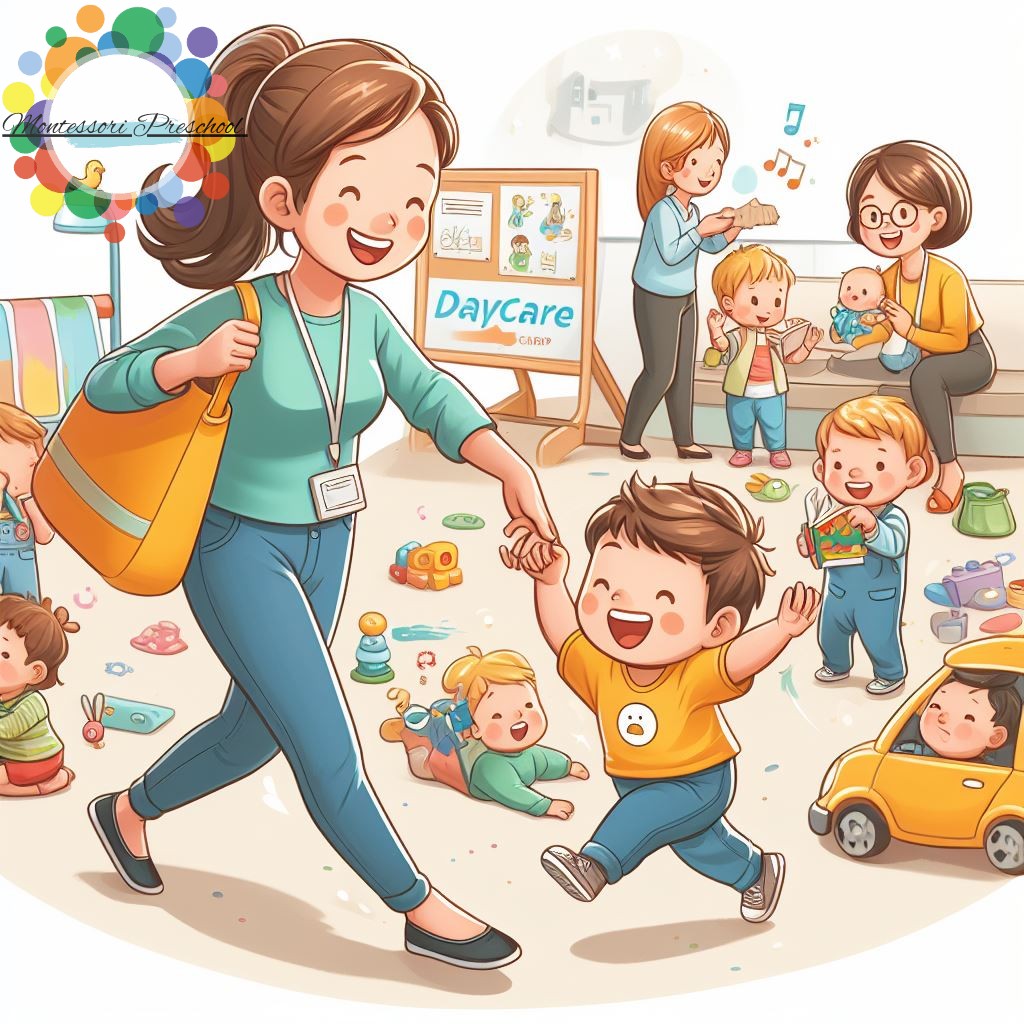
The primary relationship that significantly impacts a child’s school success and development is the one between parents and teachers. This bond plays a crucial role in shaping a child’s educational journey. When parents and teachers establish a positive and collaborative relationship, it fosters an environment where the child feels supported and valued. According to educational experts (source: .edu), healthy parent-teacher relationships contribute to early schooling success by creating synergy between home and school environments.
Importance of Home Support for Early Learning
Parents play a vital role in their child’s education. Home support for early learning is essential for a child’s academic and personal growth. Engaging in activities like playing math games and reading together can enhance a child’s cognitive development. These activities provide opportunities for hands-on learning, critical thinking, and language development. When parents actively participate in their child’s learning, it reinforces the importance of education and strengthens the parent-teacher relationship.
Complementary Nature of Home and School-Based Learning
Home support for early learning complements the education that takes place in schools. While teachers provide formal instruction and structured learning experiences, parents contribute to their child’s education through informal learning opportunities. For example, engaging in conversations, exploring the natural environment, and participating in educational activities at home broadens a child’s understanding and enhances their overall learning experience.
Building Critical Skills Through Parent-Teacher Partnership
Parent-teacher collaboration contributes to the development of critical skills in young children. When parents and teachers work together, they can identify areas where a child may need additional support or challenges. By providing targeted learning opportunities both at home and in the classroom, they can help children acquire essential skills, such as problem-solving, creativity, and social-emotional development. This partnership ensures that children receive a well-rounded educational experience.
Building Teacher and Parent Relationship
Positive communication and interaction between schools and parents greatly enhance parents’ involvement in their children’s education. Parental involvement has numerous benefits for students, including improved academic achievement, motivation, behavior, attendance, and attitude towards learning. When parents actively engage in their child’s education, teachers can focus more on teaching and gain valuable insights into the individual needs and home environment of their students.
Enhancing Academic Achievement through Parental Involvement
Research consistently demonstrates that students whose parents are actively involved in their education tend to perform better academically. When parents show interest in their child’s school work, attend parent-teacher conferences, and provide support at home, it positively impacts the child’s learning outcomes. Parental involvement plays a crucial role in motivating children to excel academically and develop a lifelong love for learning.
Improving Behavior and Attendance through Parent-Teacher Collaboration
Positive parent-teacher relationships also contribute to improved behavior and attendance in students. When parents and teachers work together to set clear expectations and reinforce behavioral norms, it creates a consistent and supportive environment for the child. By addressing any concerns promptly and collaborating on solutions, parents and teachers can help students develop self-discipline, responsibility, and a positive attitude towards school.
Gaining Insights and Understanding Students’ Needs
Parental involvement benefits teachers as well. When parents actively engage in their child’s education, it provides teachers with valuable insights into the student’s academic strengths, weaknesses, and interests. This understanding allows teachers to tailor instruction and support to meet the individual needs of their students. Additionally, by establishing open and regular communication channels, parents and teachers can work collaboratively to address any challenges that may arise during the school year.
Building Positive Relationships Between Parents and Teachers
Teachers and parents must work together to provide the best possible education for children. Recognizing that each child is cherished by someone, teachers should establish routines, have high expectations for their students, and create an inclusive and engaging learning environment. Open communication, mutual respect, and shared goals are essential in fostering a positive and productive teacher-parent relationship.
Establishing Routines and High Expectations
Teachers play a critical role in shaping a child’s educational journey. By establishing clear routines, teachers create a structured learning environment that promotes a sense of stability and security. Consistency in routines helps children develop self-discipline, time management skills, and a sense of responsibility. Additionally, setting high expectations for student achievement and behavior communicates to parents the belief in each child’s potential and fosters a culture of excellence.
Open Communication for Effective Collaboration
Open and regular communication between teachers and parents is the foundation of a strong and effective partnership. Teachers should strive to maintain open lines of communication, ensuring that parents are well-informed about their child’s progress, upcoming events, and any concerns that may arise. Likewise, parents should feel comfortable approaching teachers with questions, feedback, or any relevant information that may impact their child’s learning. By working together, parents and teachers can create a supportive network that maximizes student success.
Mutual Respect and Understanding
To build a successful teacher-parent relationship, mutual respect and understanding are essential. Teachers should acknowledge and appreciate the unique perspectives and insights parents bring to their child’s education. Likewise, parents should respect teachers’ professional expertise and efforts to create a positive learning environment. By fostering a climate of respect, teachers and parents can collaborate effectively, break down any barriers, and ensure a harmonious educational experience for the child.
Six Simple Strategies to Strengthen Parent-Teacher Relationships
Parent engagement is a vital component of a child’s educational journey. Research indicates that when parents and teachers collaborate, it positively impacts children’s learning and overall development. While building strong relationships with parents may seem challenging, the investment is well worth it. Here are six simple strategies to strengthen parent-teacher relationships:
Sharing Good News about Students
Regularly sharing positive updates about students’ progress and achievements with parents fosters a sense of pride and strengthens the parent-teacher bond. Celebrating successes, big or small, reinforces the importance of parental involvement and demonstrates the shared commitment to the child’s growth and success.
Involving Parents in Decision-Making
Parents play a valuable role in shaping their child’s education. Including parents in decision-making processes, such as curriculum choices or school policies, allows them to feel heard, valued, and empowered. By involving parents, teachers benefit from their unique perspectives and insights, leading to more effective and inclusive educational practices.
Maintaining Open Channels of Communication
Communication is the cornerstone of a successful parent-teacher relationship. Establishing and maintaining open channels of communication, such as regular newsletters, emails, or an online platform, ensures that parents stay informed about their child’s progress, upcoming events, and any concerns. When both parties feel comfortable sharing information and asking questions, it creates a collaborative environment that supports the child’s educational journey.
Welcoming Parent Involvement in the Classroom
Providing opportunities for parents to actively participate in classroom activities reinforces the partnership between teachers and parents. Arranging events, such as family reading nights, field trips, or guest speaker presentations, allows parents to engage directly with their child’s learning environment. This involvement reinforces the importance of education and strengthens the parent-teacher bond.
Being Responsive and Approachable
Teachers should strive to be responsive and approachable to parent inquiries or concerns. Promptly addressing questions or issues demonstrates a commitment to open communication and ensures that parents feel heard and valued. By resolving any concerns collaboratively, teachers and parents can maintain a positive and productive partnership that supports the child’s well-being and academic success.
Providing Resources and Support for Parents
Teachers can support parents in their role as their child’s first teacher by sharing resources, such as reading recommendations, educational websites, or workshops on parenting strategies. By providing support and guidance, teachers empower parents to actively engage in their child’s education and reinforce the importance of a strong parent-teacher relationship.
Teacher-Parent Relationship: How It Affects the Success of the Child
Parents play a significant role in their children’s learning and can greatly contribute to their success at school. Establishing a positive parent-teacher relationship is crucial for children’s school success and overall well-being. This bond helps children feel good about school, builds trust, and demonstrates the importance of education. Research highlights the positive correlation between strong teacher-parent relationships and improved academic outcomes for children (source: ).
Fostering a Positive Attitude Towards School
When parents and teachers work collaboratively, it creates an environment where children develop a positive attitude towards school. By actively engaging in their child’s education, parents demonstrate the importance of learning and model a love for education. This involvement fosters a sense of enthusiasm and curiosity in children, making them more motivated to explore, learn, and succeed academically.
Building Trust and Emotional Support
A strong teacher-parent relationship builds trust and emotional support for the child. When parents and teachers communicate openly, children feel secure and confident in their learning environment. This trust allows children to approach their teachers with questions, concerns, or challenges, knowing that they will be met with understanding and support. By working collaboratively, parents and teachers can address any obstacles that arise, ensuring the child’s emotional well-being and success.
Enhancing Student Engagement and Achievement
Engaged students tend to perform better academically. When parents and teachers collaborate, it creates a cohesive support system that encourages student engagement. By emphasizing the importance of education and setting high expectations, parents and teachers motivate children to take ownership of their learning. This involvement enhances student performance, deepens understanding, and promotes a lifelong love for learning.
Bridging the Gap Between Home and School
A strong teacher-parent relationship bridges the gap between home and school environments. When parents and teachers communicate regularly, they develop a shared understanding of the child’s strengths, challenges, and interests. This shared knowledge allows teachers to tailor instruction to meet individual needs, ensuring that the child receives the necessary support both at home and in the classroom. By aligning efforts, parents and teachers create a cohesive educational experience that maximizes the child’s potential.
Conclusion
Nurturing the vital bond between teachers and parents is crucial for a child’s educational journey. This relationship significantly impacts a child’s school success, development, and overall well-being. By establishing healthy parent-teacher relationships, engaging in open communication, and working collaboratively, parents and teachers can create a supportive environment that maximizes student achievement. The shared goal of providing the best education for children can be achieved through mutual respect, understanding, and a commitment to fostering a lifelong love for learning.



